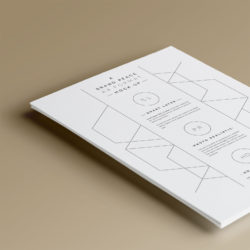I am always in search of techniques to make self editing easier and more effective. Because, let’s face it, if you write more than a book or two, paying a couple grand a pop breaks the piggy bank.
So, between myself, wife and my English guru friend, we tackle the subject armed with Chicago Manuals of Style and an assortment of dictionaries and self editing compendiums. And we flank our maneuvers with full tanks of caffeine.
We also go over the manuscript many times, about six or seven before we put that baby to bed. Needless to say, this takes time and since lack of time is the biggest enemy of today’s indie author, I am always looking for ways to speed things up and increase quality. Because you don’t want to speed things and decrease quality, do you?
So in the interest of community and assistance to my fellow authors, I would be remiss if I did not mention here what I have found. If you already know all about this, it wouldn’t be the first time I am late on the chain, but as they say, better late than never got out of bed.
This method I am about to expose, is based on a the principle that writers have crutches they don’t know about. Subconscious word smiths who are so dull they make Eeyore look like Bozo the Clown. Yet these sluggards have one very strong trait. They never drop a ball.
They go to work day in and day out, tirelessly pounding in the nails. These boys have no life.
They construct pet phrases and little words that, when trouble sets in, at least get the job done and take the story where it wants to go regardless of weather conditions. These workman verbs don’t give a rat’s fanny pack how it gets done, just build that road.
I call it the Wyrm Method. “Wrym” is a cool way of saying “worm.”
These repetitive words and phrases can infect a manuscript like a tapeworm, sucking out the life while making you think you’re just hungry.
A couple of these ageless parasites are: Seems, stood, nodded, sighed. When the terrain becomes slightly more rocky, the Eeyore homunculus in his yellow plastic construction hat opens his thermos and really pours on a double dose of dull. Stopped and stared, looked and smiled, thought and realized.
Some other construction site parasites might include: cocked his head, spun on his heel, smelled the fear and that Mack Daddy of them all: between forefinger and thumb. Its just not a good book unless someone can hold something with his forefinger and his thumb at the same time, as if he would do it any other way!
Oh, its nothing to be ashamed of. We all need to walk on a sidewalk and when you can’t cross the river, you better build at least a rope bridge. The problem with these utilitarian words and cliches is not even so much that they are as tasteless as stale baklava, but that they are used time and again, like that Chicago pothole that just won’t stay filled after the next rain no matter how many times they come and pour in loose asphalt.
There is another problem. These boredom inducing bits posses a camouflage component that is more effective than a Trojan rocking horse. Around these manuscript murderers I daresay you will find whole nests of pathetic prose, passive voice and in general sleep inducers better than Ambient, but far less addictive. Find the wyrm and you find his brood of dullards in overalls and hard hats. Have no mercy. Exterminate.
So, if you think your manuscript might have wyrms, use my extermination technique. Pick a colorless modifier, load it into you search and find matrix and root those suckers out. And I daresay once you begin, you’ll find more and more and more, until they wither up and die and your manuscript will be that much closer to health.
Happy hunting.














Leave a Reply
Your email is safe with us.